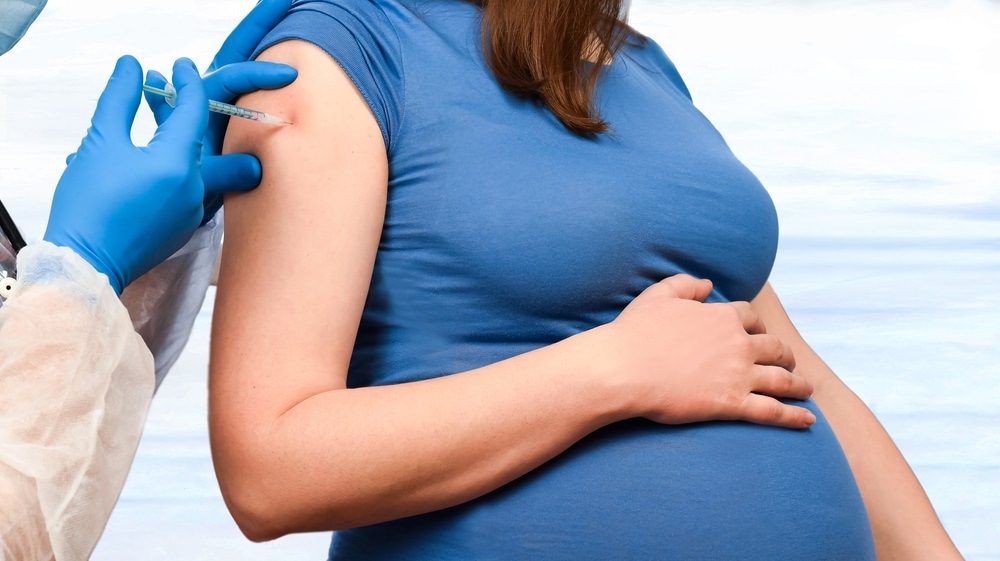Messenger ribonucleic acid (mRNA) vaccines have been proven safe, relatively fast-acting, and effective against the coronavirus disease 2019 (COVID-19). Evidence also suggests that these vaccines are safe for pregnant women to use.
Despite this, only 16.3% of pregnant women have received the vaccine, thus demonstrating understandable reluctance given the high levels of media attention to the possible side effects. To help further understand the effect of mRNA vaccines on pregnant women, researchers from New York University have been investigating the transplacental transmission of antibodies in vaccinated pregnant women.
 Study: High antibody levels in cord blood from pregnant women vaccinated against COVID-19. Image Credit: Marina Demidiuk / Shutterstock.com
Study: High antibody levels in cord blood from pregnant women vaccinated against COVID-19. Image Credit: Marina Demidiuk / Shutterstock.com
Vaccine approaches
Traditionally, vaccines are created from attenuated or inactive forms of the virus that cannot invade cells or reproduce. This allows the immune system to recognize specific epitopes and produce antibodies against them. This method of immunization has proven to be very effective; however, it can lead to some safety issues, as the viruses can reactivate or become infective if they reacquire traits from the wild-type virus.
Thus, mRNA vaccines circumvent this issue by providing only the mRNA encoding for antigens and relying on the hosts’ cell machinery to express the genetic material the vaccine avoids the potential for infection. However, in very rare cases, some of the mRNA vaccines have shown severe side effects such as hemorrhaging that can lead to death.
About the study
The researchers of the current study published in the American Journal of Obstetrics & Gynecology MFM identified and recruited eligible women who were previously vaccinated against COVID-19 and collected umbilical cord blood at delivery, which was then analyzed for anti-nucleocapsid (N) and anti-spike(S) IgG.
The severe acute respiratory syndrome coronavirus 2 (SARS-CoV-2) spike protein is essential for the pathogenicity of the disease. Within the S protein, the receptor-binding domain (RBD) of the S1 subunit binds to the angiotensin-converting enzyme 2 (ACE2) receptor to allow viral cell entry, while the N-terminal domain of the S2 subunit is responsible for membrane fusion. For these reasons, the S protein is the target of most vaccines.
Therefore, if the assays show strong evidence of anti-S IgGs, but no evidence of anti-N IgGs, it is probable that vaccine-induced immunity is the likely cause of transplacental antibody transmission. A mix of the two would indicate that the mother had been previously infected with COVID-19, or prior monoclonal antibody treatment. The scientists used commercially available immunoassays to detect anti-N and anti-S IgGs.
Study findings
A total of 36 samples were collected from deliveries. All 36 newborns were positive for anti-S IgGs, showing strong results. Moreover, 31 of these samples were also tested for anti-N IgGs, all of which were positive.
Generally, the mothers had received their doses between 6 and 25 weeks before birth, with only one woman awaiting her final dose. None of the women in this study had any history of prior COVID-19 infection. This is supported by the lack of anti-N IgGs, which is strong evidence for the responsibility of the vaccine in the transfer of antibodies.
Previous studies investigating the passing of antibodies gained through natural immunity between mothers and newborns show the passage of anti-N IgGs, further supporting the gathered evidence.
The authors highlight the value of their study in informing public health policy. In particular, the researchers of the current study emphasize the need to advise pregnant women to receive the COVID-19 vaccine during pregnancy, both for the protection of the mother and fetus, as well as for the protection of the newborn once arrived.